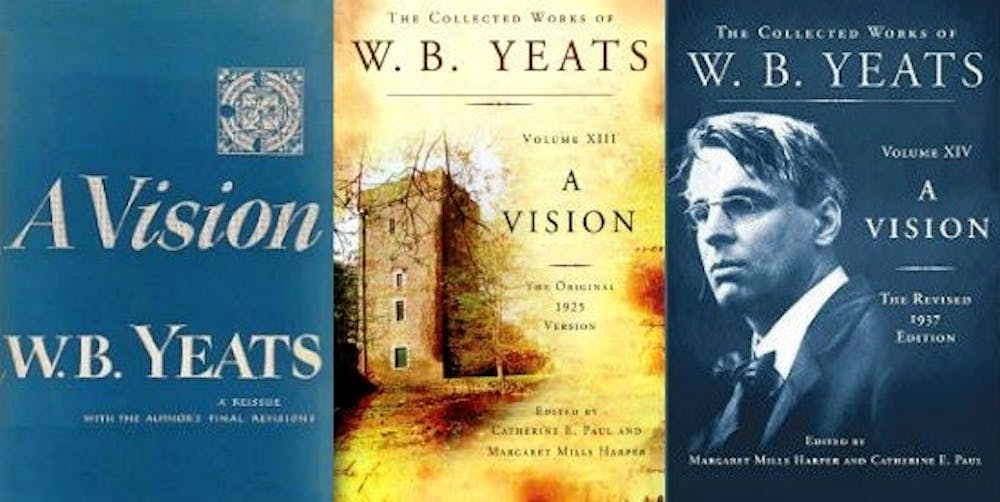Book: A Vision by William Butler Yeats
Recommended by: Isabella Fertel
Genre: Poetry/Philosophy
Synopsis that won't give away the plot:
Irish poet William Butler Yeats and his wife, Georgie, embark on a mission to define the world and universe around him. Yeats explors various philosophical, historical, and astrological topics through a technique known as “automatic writing,” in which the author uses their subconscious (or perceived psychic, spiritual, or supernatural force) to write without conscious thought.
Yeats spends the beginning of the book explaining various geometrical concepts that serve as the basis of his imagery and thinking. The primary geometrical concepts are the gyre, a cone–like vortex, and the double gyre, in which two gyres are superimposed over each other. Yeats uses the gyres to represent principles and combatting ideas, similar to the ideas of yin and yang.
Yeats further explores this notion of light and dark throughout the book, moving next into detailed study of the phases of the moon and what he calls the “tinctures,” a system that represents the duality of reality. The tinctures are a major component of Yeats’ system of the universe.
At times, Yeats becomes extremely verbose and overly descriptive, making for a dense read usually reserved for those already acquainted with either Yeats or the concepts he dissects. But what underlies the literal writing and Yeats’ physical world is an analysis of the human experience and both the conscious and unconscious mind. This analysis rivaled leading philosophical reasoning at the time and continues to drive the exploration of the ego.
Line that tickled your eyeballs (aka good quote):
“The will looks into a painted picture, the creative mind looks into a photograph, but both look into something that is opposite of themselves.”
Who you'd recommend it to: lovers of the written word, Nietzsche groupies, the pseudo–intellectual in my Kelly Writers House class
Why it's your fall pick: Because nothing pairs better with pumpkin spice than an existential crisis

